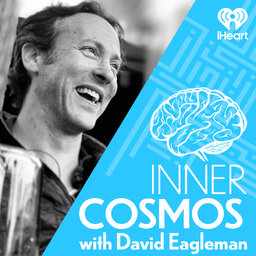Ep77 "What is Life?"
How do you define what things are living and dead? You might look at a sprinting cheetah and say it's clearly alive, whereas a chunk of rock is not -- but where do we draw the line? What might we expect extraterrestrials to look like, and would we even have the capacity to recognize them? And what does any of this have to do with Frankenstein, ancient Greek philosophers, or the possibility of finding a cell phone on Mars? Join Eagleman with guest Sara Walker, theoretical physicist at Arizona State University and author of the book “Life as No One Knows It”.
In 1 playlist(s)
Inner Cosmos with David Eagleman
Neuroscientist and author David Eagleman discusses how our brain interprets the world and what that …Social links
Follow podcast
Recent clips

Ep136 "Why do we care about mattering?" with Rebecca Goldstein
41:31

Ep135: What does neuroscience mean by hypnosis? with David Spiegel
55:16

Ep82 Re Broadcast "Why Do Your 30 Trillion Cells Feel Like a Self?" Part 1
29:29
 Inner Cosmos with David Eagleman
Inner Cosmos with David Eagleman